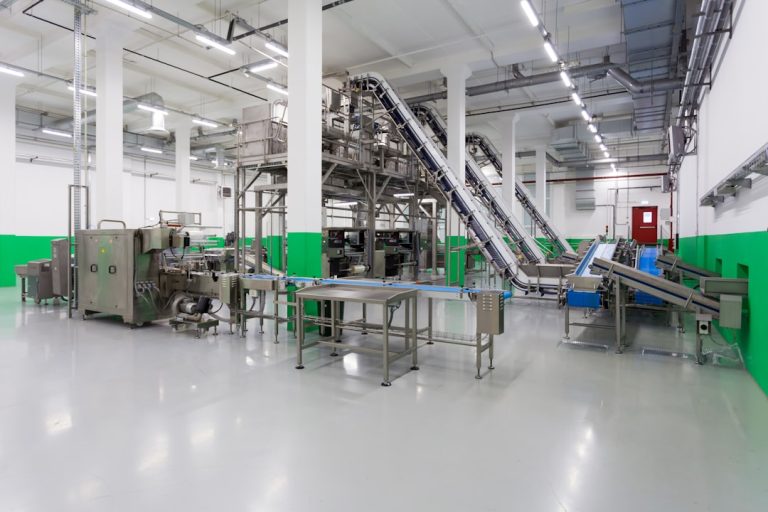
Stockers and order fillers play a pivotal role in the supply chain, serving as the backbone of inventory management and product availability in retail and distribution environments. These professionals are responsible for ensuring that products are readily available for consumers, which is essential for maintaining customer satisfaction and driving sales. Stockers typically work in retail settings, where they replenish shelves, organize merchandise, and ensure that products are displayed attractively.
Order fillers, on the other hand, are often found in warehouses or distribution centers, where they pick and pack items for shipment to stores or directly to customers. Together, these roles facilitate the smooth flow of goods from suppliers to consumers, making them integral to the overall efficiency of the supply chain. The importance of stockers and order fillers extends beyond mere product placement; they are crucial in managing inventory levels and minimizing stockouts.
By monitoring inventory and restocking shelves promptly, stockers help retailers avoid lost sales due to empty shelves. Similarly, order fillers ensure that orders are accurately picked and packed, which is vital for maintaining the integrity of the supply chain. Their work directly impacts the speed and accuracy of order fulfillment, which is increasingly important in an era where consumers expect rapid delivery times.
In essence, stockers and order fillers serve as the link between supply and demand, ensuring that products are available when and where they are needed.
Key Takeaways
- Stockers and order fillers play a crucial role in the supply chain by ensuring that products are organized and ready for distribution.
- The skills and qualifications required for stockers and order fillers include physical stamina, attention to detail, and the ability to work in a fast-paced environment.
- Job duties and responsibilities of stockers and order fillers include receiving, unpacking, and organizing merchandise, as well as filling and processing customer orders.
- Stockers and order fillers are important in retail and distribution as they help maintain inventory accuracy and ensure that products are readily available for customers.
- The job outlook and employment opportunities for stockers and order fillers are expected to remain steady, with potential for growth in e-commerce and warehouse distribution sectors.
Skills and Qualifications Required for Stockers and Order Fillers
To excel as a stocker or order filler, individuals must possess a specific set of skills and qualifications that enable them to perform their duties effectively. One of the most critical skills is attention to detail. Stockers must be able to accurately identify products, check for expiration dates, and ensure that items are placed in their correct locations on shelves.
This attention to detail helps maintain inventory accuracy and prevents issues such as overstocking or understocking. Similarly, order fillers need to be meticulous when picking items for orders, as errors can lead to customer dissatisfaction and increased return rates. Physical stamina is another essential qualification for stockers and order fillers.
These roles often require long hours of standing, lifting heavy boxes, and moving quickly throughout the store or warehouse. Employees must be able to handle physical demands while maintaining efficiency in their work. Additionally, familiarity with inventory management systems and basic computer skills can be beneficial, especially in larger retail environments or distribution centers where technology plays a significant role in tracking inventory levels and processing orders.
While formal education requirements may vary, a high school diploma or equivalent is typically preferred, along with any relevant experience in retail or warehouse settings.
Job Duties and Responsibilities of Stockers and Order Fillers

The job duties of stockers and order fillers can vary significantly based on their specific roles within a retail or distribution environment. Stockers are primarily responsible for replenishing shelves with merchandise, ensuring that products are organized and accessible to customers. This includes unloading deliveries, checking inventory levels, rotating stock to prevent spoilage, and maintaining cleanliness in the store.
They may also assist customers by answering questions about product locations or providing information about promotions. Effective communication skills are essential for stockers as they often collaborate with other team members to ensure that the store runs smoothly. Order fillers have a different set of responsibilities that focus on preparing products for shipment.
Their primary duty is to accurately pick items from warehouse shelves based on customer orders. This process often involves using handheld scanners or inventory management systems to track items and ensure accuracy. Once items are picked, order fillers pack them securely for transport, labeling packages appropriately for delivery.
They may also be responsible for conducting quality checks to ensure that the correct items are shipped in good condition. Both roles require a strong sense of organization and time management skills to meet deadlines and maintain productivity levels. Source: Bureau of Labor Statistics
The Importance of Stockers and Order Fillers in Retail and Distribution
| Metrics | Retail | Distribution |
|---|---|---|
| Inventory Management | Ensuring products are stocked and organized on shelves | Managing inventory levels in warehouses |
| Order Fulfillment | Processing customer orders and ensuring timely delivery | Picking and packing products for shipment |
| Customer Satisfaction | Ensuring products are readily available for customers | Meeting delivery timelines and accuracy |
| Efficiency | Optimizing shelf space and product placement | Streamlining warehouse operations for quick order processing |
The significance of stockers and order fillers in retail and distribution cannot be overstated. In retail environments, stockers play a crucial role in creating an appealing shopping experience for customers. Well-stocked shelves with organized displays not only enhance the aesthetic appeal of a store but also encourage impulse purchases.
When customers can easily find what they need without encountering empty shelves, their overall shopping experience improves, leading to increased customer loyalty and repeat business. In distribution centers, order fillers are equally vital as they directly impact the efficiency of the supply chain. With the rise of e-commerce, the demand for quick and accurate order fulfillment has surged.
Order fillers must work diligently to ensure that products are picked accurately and shipped promptly to meet customer expectations for fast delivery times. Their efficiency can significantly affect a company’s bottom line; delays or errors in order fulfillment can lead to dissatisfied customers and lost sales opportunities. Thus, both stockers and order fillers contribute significantly to the operational success of retail businesses and distribution networks.
Job Outlook and Employment Opportunities for Stockers and Order Fillers
The job outlook for stockers and order fillers remains positive as the retail industry continues to evolve alongside changing consumer behaviors. According to the U.S. Bureau of Labor Statistics (BLS), employment for stock clerks is projected to grow at a rate of about 2% from 2021 to 2031, which is consistent with the average growth rate for all occupations.
This growth is driven by factors such as population increases, which lead to higher demand for goods in retail settings, as well as the expansion of e-commerce platforms that require efficient warehousing operations. Employment opportunities for stockers and order fillers can be found across various sectors, including grocery stores, department stores, warehouses, and fulfillment centers. Many companies offer flexible scheduling options, making these positions appealing for individuals seeking part-time work or those looking to enter the workforce without extensive experience.
Additionally, as businesses increasingly adopt automation technologies in their operations, there may be new roles emerging that focus on managing these systems alongside traditional stocker and order filler duties.
Training and Education for Stockers and Order Fillers

Training for stockers and order fillers typically occurs on-the-job, allowing new employees to learn directly from experienced staff members. This hands-on approach is effective because it enables trainees to familiarize themselves with specific store layouts or warehouse systems while gaining practical experience in inventory management practices. Many employers provide orientation sessions that cover essential safety protocols, equipment usage (such as forklifts or pallet jacks), and company policies regarding customer service.
While formal education requirements are minimal for these positions, some employers may prefer candidates who have completed high school or possess a GED. Additionally, training programs offered by community colleges or vocational schools can provide valuable skills related to inventory management systems or logistics operations. Certifications in areas such as warehouse safety or forklift operation can also enhance an individual’s employability within this field.
Advancement Opportunities for Stockers and Order Fillers
Stockers and order fillers have various pathways for career advancement within the retail and distribution sectors. With experience and demonstrated competence in their roles, individuals may have opportunities to move into supervisory positions such as lead stocker or warehouse supervisor. These roles typically involve overseeing a team of stockers or order fillers, managing schedules, training new employees, and ensuring compliance with safety regulations.
For those interested in furthering their careers beyond supervisory roles, additional training or education can open doors to positions such as inventory control specialist or logistics coordinator. These roles often require a deeper understanding of supply chain management principles and may involve responsibilities such as analyzing inventory data, forecasting demand, or coordinating shipments with suppliers.
The Impact of Stockers and Order Fillers on the US Economy
The contributions of stockers and order fillers extend beyond individual businesses; they play a significant role in supporting the broader U.S. economy. By ensuring that products are available in stores and efficiently shipped from warehouses, these professionals help facilitate consumer spending—a key driver of economic growth.
Retail sales account for a substantial portion of the U.S. GDP, making the roles of stockers and order fillers essential in maintaining this economic engine. Moreover, as e-commerce continues to grow rapidly, the demand for skilled stockers and order fillers is likely to increase further.
The rise of online shopping has transformed how goods are distributed, leading to an expansion of fulfillment centers across the country. This shift not only creates job opportunities but also stimulates local economies by generating revenue through increased consumer spending on goods delivered directly to homes. In this way, stockers and order fillers contribute not only to their immediate workplaces but also to the overall health of the economy by supporting consumer access to products across various sectors.
If you are interested in learning more about the job market in the USA, you may want to check out the article “Hello World” on careersintheusa.com. This article provides an overview of various occupations in the country, including Stockers and Order Fillers. It can give you a better understanding of the opportunities available in this field and help you make informed decisions about your career path.
FAQs
What are stockers and order fillers?
Stockers and order fillers are workers who are responsible for receiving, storing, and distributing materials, tools, equipment, and products within a warehouse or distribution center.
What are the typical job duties of stockers and order fillers?
Typical job duties of stockers and order fillers include receiving and unpacking materials and products, verifying the accuracy of incoming shipments, organizing and storing items in designated locations, filling and preparing orders for shipment, and maintaining inventory records.
What are the educational requirements for stockers and order fillers?
Most stocker and order filler positions require a high school diploma or equivalent. On-the-job training is typically provided to learn the specific duties and responsibilities of the role.
What skills are important for stockers and order fillers?
Important skills for stockers and order fillers include attention to detail, physical stamina, organizational skills, time management, and the ability to operate warehouse equipment such as forklifts and pallet jacks.
What is the job outlook for stockers and order fillers?
According to the U.S. Bureau of Labor Statistics, employment of stockers and order fillers is projected to show little or no change from 2020 to 2030. However, job opportunities are expected to be good due to the need to replace workers who leave the occupation.






